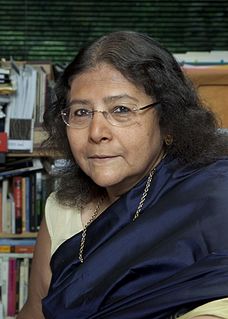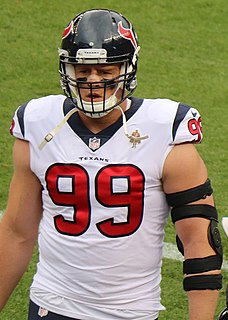A Quote by Sheila Jasanoff
We need a more widely shared burden on the part of society to keep asking, "What are our collective values, what kind of world do we want to bequeath to our children, and to what extent are these particular technological developments helping us go in those directions? I think that corporations, every bit as much as governments, social movements, and universities - we all have a role to play in asking those questions. I don't think anybody should have a monopoly on that responsibility.
Quote Topics
Anybody
Asking
Bequeath
Bit
Burden
Children
Collective
Corporations
Directions
Every
Extent
Go
Governments
Helping
Keep
Kind
Monopoly
More
Movements
Much
Need
Our
Our Children
Part
Particular
Play
Questions
Responsibility
Role
Shared
Should
Should Have
Social
Social Movements
Society
Technological
Technological Development
Think
Those
Universities
Us
Values
Want
Widely
World
Related Quotes
If you don't put the spiritual and religious dimension into our political conversation, you won't be asking the really big and important question. If you don't bring in values and religion, you'll be asking superficial questions. What is life all about? What is our relationship to God? These are the important questions. What is our obligation to one another and community? If we don't ask those questions, the residual questions that we're asking aren't as interesting.
For me, I felt bad for people asking the questions, cause you know their boss sent them out saying, 'Get me something on Mission Impossible.' And you ask the question, and it's just a polite, 'I'm not going to tell you.' Then, every so often, they'd go, 'Well, can't you just tell us a little bit?' I have to say, 'You know what guys, I'm under contract and I'm not going to tell you anything.' So you keep asking the questions and I'm just going to keep smiling. And it's hard, cause I don't want to seem rude, but it's part of my job just like it's part of their job to keep a secret.
People who go around saying that it is wrong to fly and to eat meat are not so much making appeals to us from within our shared morality, but engaging in something more like "persuasive definition." They want us to look at the world and ourselves in a different way. Someday these prohibitions against flying and eating meat may be written into our moral psychology, but it will only be after there are viable, widely shared alternatives that are beginning to be widely adopted.
I am kind of a sucker for democracy, so I do think that what kinds of citizens we have in our societies are more foundational than what kinds of governments we have, and that the responsibility for self-government is ultimately with us. But we also have learned through a couple thousand years of democracy that democracies are only as good as people's capacity to reflect on those questions.
Perhaps one of the most powerful keys to determining our experience of the months ahead comes from a shift in thinking that invites us beyond asking, 'What can I get from the world that exists,' to asking, 'What can I offer to the world that is awakening?' The way we answer this question as individuals becomes our collective answer to what comes next.
The big question that everyone is asking themselves, or what they should be asking themselves right now, is what role has the media played in not just missing a certain part of American society that wanted to vote for, say, Donald Trump, but what role has the media played in dehumanizing other people and helping create these conditions that people are so afraid of, say, Muslims and extremism?
We are social beings who make communities with an urgency, and it is a stern charge to make us take refuge in the lonely world of oneself. ...Racism attempts to occlude our cosmopolitanism (of the songs in and out of our bones), and it often appropriates our mild forms of xenophobia into its own virulent project. Difference among peoples is something that we negotiate in our everyday interactions, asking questions and being better informed of our mutual realities. To transform difference into the body is an act of bad faith, a denial of our shared nakedness.































